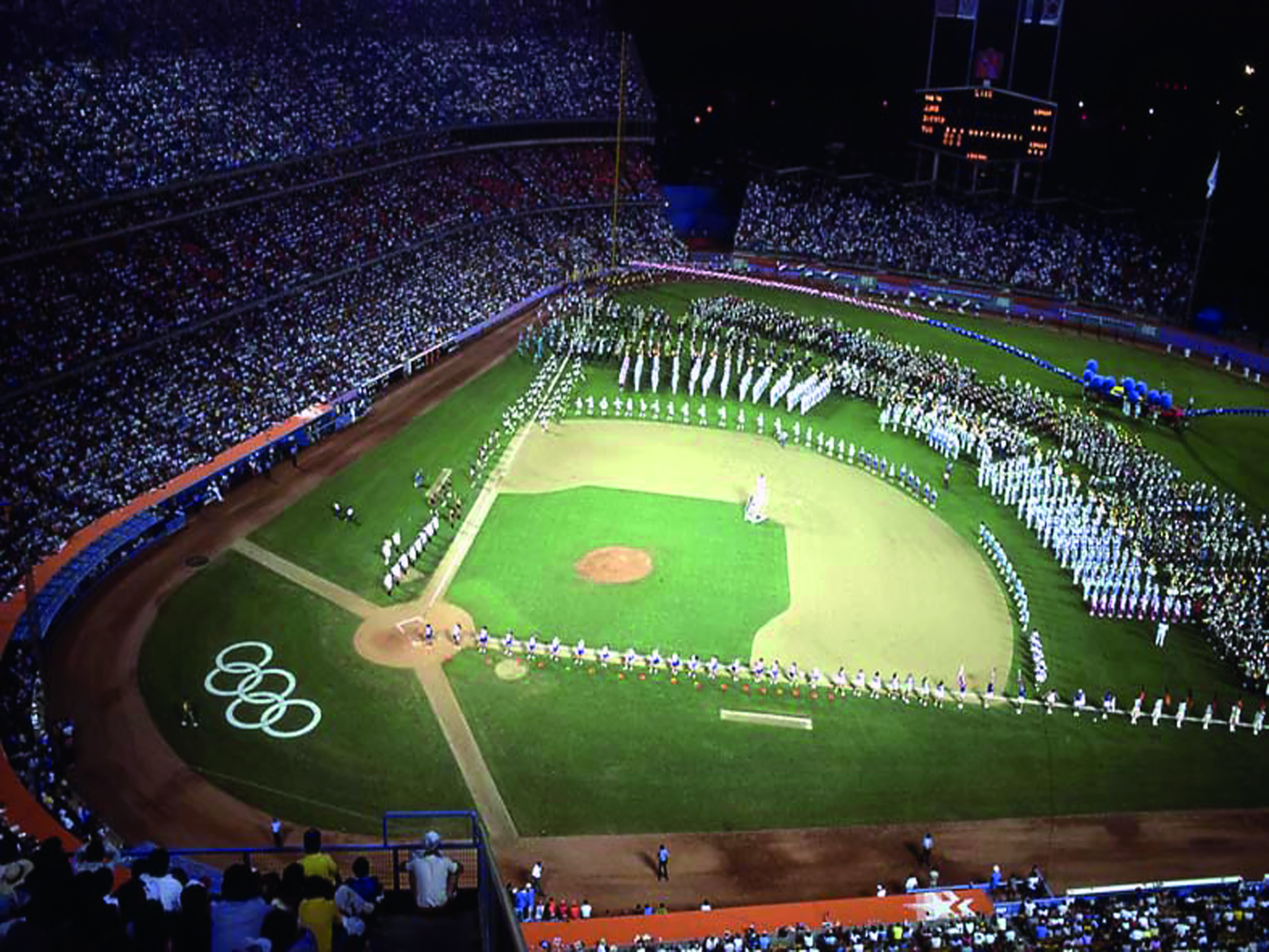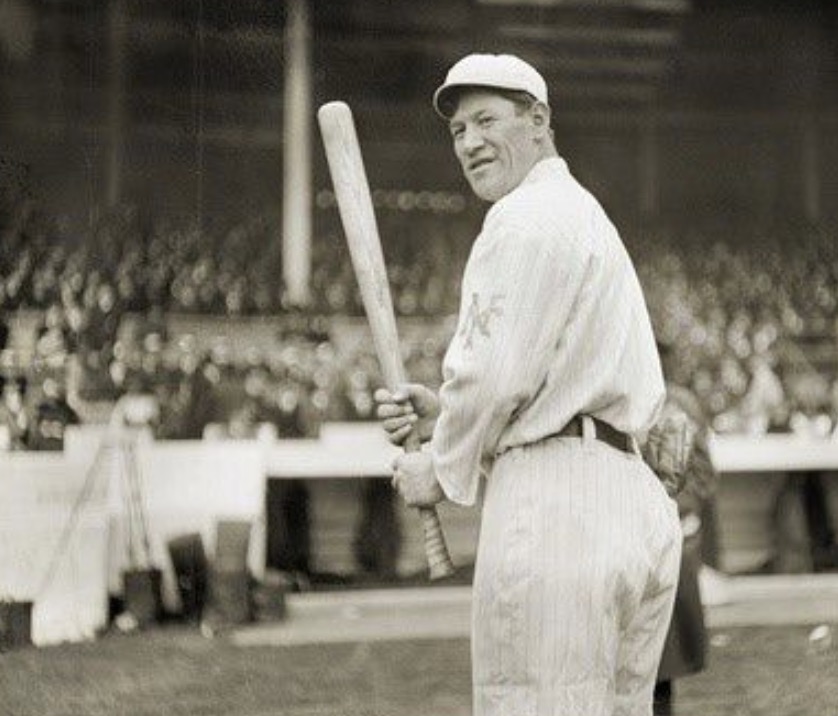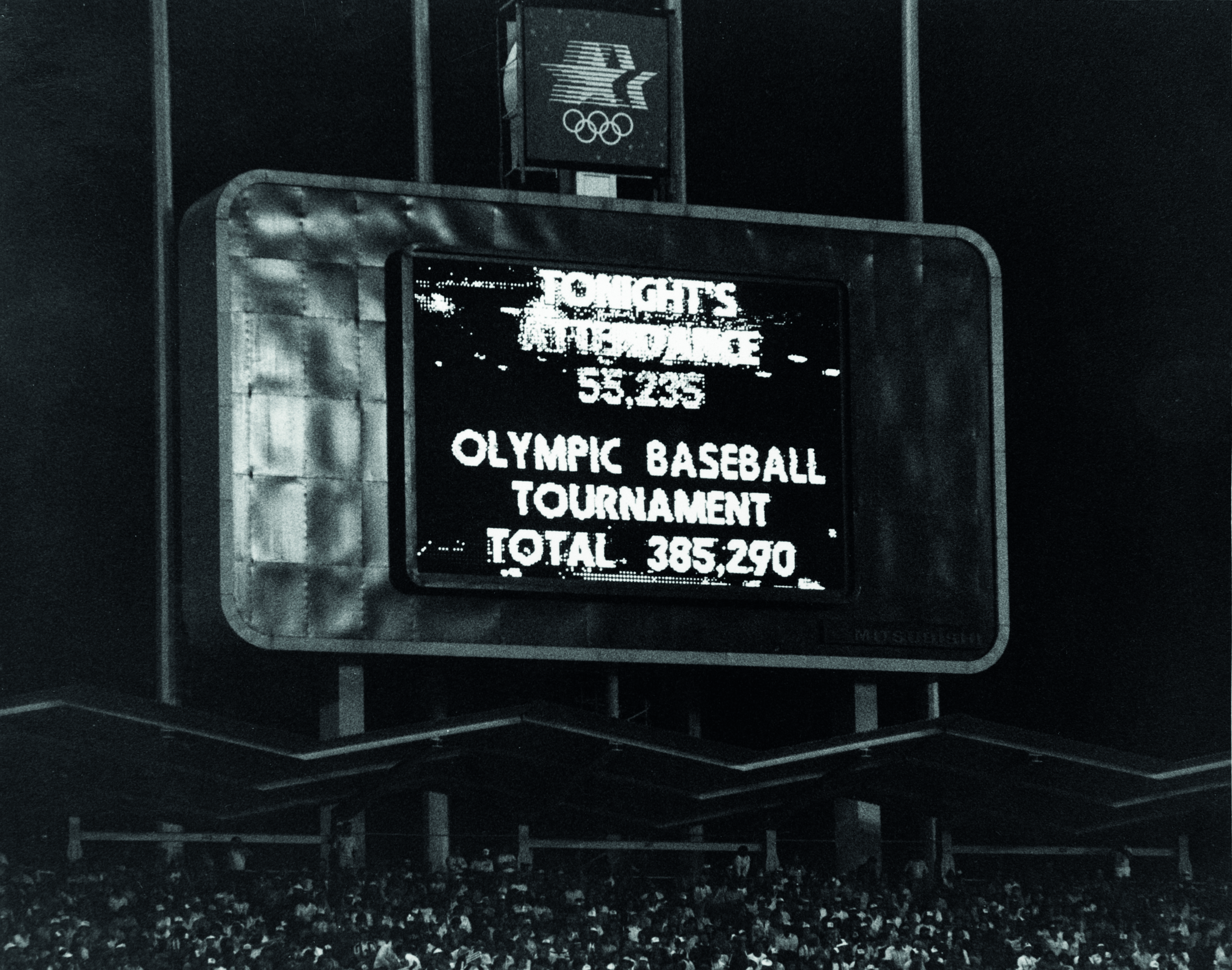The 141st IOC Session in Mumbai, India, confirmed on Monday, 16 October, a Los Angeles 2028 Organizing Committee proposal and added five sports, including baseball/softball, to the Games programme.
The news was met with great emotion and celebration by athletes, fans and practitioners around the world. But how did Olympic baseball get to where it is today? Here's a look back at the Olympic history of baseball with a similar softball feature soon to follow.

The history of Olympic Baseball starts with an episode that would be great fiction if it were not true and narrated in detail in High Hurdles and White Gloves, a book published by Thomas Pelham Curtis in 1932.
After winning gold in 110-metre hurdles at the 1896 Athens Olympics, the first of the modern era, Curtis (1873-1944) accepted, together with other members of the US Olympic team, an invitation from the Royal Family and remained in Greece. King George I considered Americans "barbarians" and wanted to learn more about their habits.

The King's eldest son, and future King Constantine I, was very fond of sports and asked Curtis and the other Americans to show him and his brother George how to play baseball.
Curtis thought that an orange could serve as the ball and a stick as the bat. He asked Constantine to squat and act as the catcher and handed the orange to George.
Curtis swang his stick at the orange George threw, but, in his own words, he hit it "too well". The remains of the orange blurred Constantine's full dress uniform.
"He was a sportsman and took it well," wrote Curtis. "But that was all for the Americanization of Greece."
Paris hosted the second edition of the Olympics in 1900 and couldn't find a spot for baseball as a demonstration sport. St. Louis tried introducing baseball in 1904 and but the demonstration went relatively unnoticed.
The 1912 Stockholm Olympics didn't feature baseball, but a baseball player made the headlines. Jim Thorpe (1887-1953) won gold in both pentathlon and decathlon. The International Olympic Committee (IOC) decided to strip him of his medals when evidence surfaced he had played professional baseball in the Eastern Caroline League.
The IOC recognized it had been unjust in 1983, 30 years after Thorpe's death. The gold medals were awarded in his memory on 14 July 2022.

Jim Thorpe would go on to play 289 Major League Baseball (MLB) games. Among the athletes he defeated in 1912, Avery Brundage (1887-1975) had the most surprising career. He was the president of the United States Olympic Committee (USOC) in 1936 when baseball was demonstrated at the Berlin Olympics in front of Adolf Hitler and 100,000 spectators.
Brundage became the IOC president in 1952 but baseball remained as a demonstration sport despite a full house that witnessed the 1956 demonstration in Melbourne and 50,000 spectators who saw a USA College team defeat Japan at the Meiji Jingu Stadium at the 1964 Tokyo Games. "There's no amateur baseball player," Brundage used to say, since in his view, even college players received some form of compensation.
The Tokyo demonstration didn't grant baseball a spot on the Olympic programme but made Olympic baseball a priority for Rod Dedeaux (1914-2006), the US manager and already a legendary college coach.
Dedeaux joined forces with the International Baseball Association president Robert Smith (1936-2021) and became instrumental in involving the Los Angeles Dodgers owner Peter O'Malley to support baseball as a demonstration sport at the 1984 Los Angeles Games.
O'Malley and Dedeaux had lunch together, and O'Malley would remember, "It proved the most expensive lunch I ever had."

O'Malley and the Dodgers guaranteed the Organizing Committee against losses, thus making the demonstration tournament possible.
Japan won the tournament in LA, which proved an astounding success, attracting 385,290 paying spectators and paving the street to an IOC vote that made baseball an Olympic sport on 13 October 1986.
Baseball made its debut as a medal sport at the Barcelona 1992 Olympics and went on to feature at the 1996, 2000, 2004 and 2008 Games before returning for Tokyo 2020 and LA2028.









